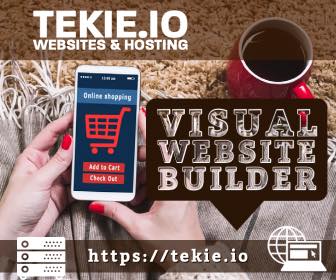Artificial intelligence (AI) has made significant strides in recent years, ushering in a new era of innovation across various industries. Among these, content publishing, marketing, and search engine optimization (SEO) have witnessed a remarkable transformation thanks to the integration of AI tools. This article will explore how emerging AI tools are reshaping these fields, enabling businesses to streamline processes, make data-driven decisions, and stay ahead of the competition.
AI and Content Publishing
Automated Content Generation: AI-powered tools like GPT-3 and OpenAI’s Codex have revolutionized content creation by generating high-quality written content in a fraction of the time it takes humans. These tools can produce articles, social media posts, and more, allowing businesses to scale their content production efforts and maintain a consistent online presence.
Content Optimization: AI-driven content optimization tools analyze user behavior, keywords, and search intent to help businesses create content that resonates with their target audience. By identifying content gaps, suggesting keyword optimization, and providing insights on user engagement, these tools enable businesses to refine their content strategy and maximize its impact.
Personalization: AI algorithms can analyze user data to create personalized content experiences for individual users. By tailoring content recommendations based on user interests, browsing history, and behavior, businesses can offer a more engaging and relevant experience that encourages user retention and conversion.
AI and Marketing
Customer Segmentation: AI tools can analyze vast amounts of customer data to identify patterns and trends, enabling businesses to segment their audience more accurately. This level of precision allows for more targeted marketing campaigns and improved return on investment (ROI).
Predictive Analytics: AI-powered predictive analytics tools can forecast customer behavior and preferences, helping businesses make data-driven marketing decisions. By understanding what customers are likely to respond to, businesses can tailor their marketing efforts for maximum effectiveness.
Chatbots and Virtual Assistants: AI-driven chatbots and virtual assistants have become essential components of modern marketing strategies. These tools can engage with customers 24/7, answering questions, providing support, and even guiding users through the sales funnel, all without human intervention.
AI and SEO
Keyword Research and Optimization: AI tools can analyze search trends and user intent to identify high-performing keywords and optimize content for better search engine visibility. By continually updating keyword data and providing recommendations for optimization, AI-driven SEO tools ensure that businesses stay ahead of the competition.
Voice Search Optimization: With the rise of voice-activated virtual assistants like Siri, Alexa, and Google Assistant, voice search optimization has become increasingly important. AI tools can help businesses adapt their content and SEO strategies to cater to this growing trend, ensuring they remain visible and accessible to voice search users.
Link Building: AI-driven tools can analyze backlink profiles, identify link-building opportunities, and suggest high-quality websites for outreach efforts. By automating the link-building process, businesses can save time and resources while improving their website’s authority and search engine rankings.
AI is a Paradigm Shift
The emergence of AI tools has brought about a paradigm shift in content publishing, marketing, and SEO. By leveraging the power of AI, businesses can streamline processes, create more targeted and personalized content, and make data-driven decisions that drive growth and success. As AI continues to advance, its impact on these fields will only grow, offering new opportunities for businesses to stay ahead of the curve and thrive in an increasingly competitive digital landscape.




